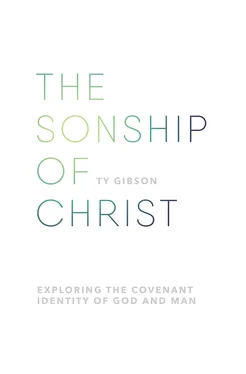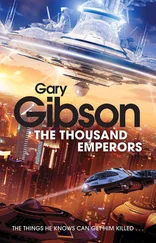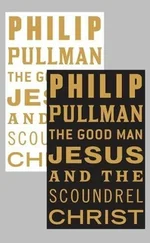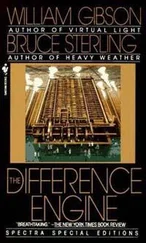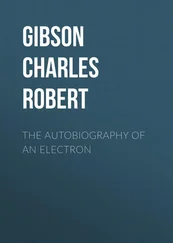Why?
Well, because David is a man of war with blood on his hands (1 Chronicles 17, 22, 28). Within the biblical narrative, God’s character is ultimately incompatible with war (Isaiah 2:1-4), so a man of peace must build God’s temple. That man is Solomon, whose name means peace—peace from war, that is (1 Chronicles 22:9). In this way, as the covenant promise is transferred from David to Solomon, God is projecting forward to the grander purpose He will eventually achieve through Christ. In a penultimate sense, Solomon is God’s peaceful son, pointing forward to Jesus, the ultimate Prince of Peace. He is the One in whom God will “establish the throne of His kingdom over Israel forever,” without war.
So with Solomon, we are one step closer, or one “son of God” closer, to the promised Messiah. The story has a very distinct, obvious shape.
Adam, the son of God, fails in his Sonship role.
God promises to initiate a lineage through which a new Son of God will come to rectify Adam’s fall.
God establishes a people through whom the promise will be fulfilled, and a succession unfolds in the following manner:
Abraham, the son of God, gives way to . . .
Isaac, the son of God, who gives way to . . .
Jacob, the son of God, who gives way to . . .
Israel, the corporate son of God, who gives way to . . .
David, the son of God, who gives way to . . .
Solomon, the son of God.
Clarity is building. Scripture is a seamless narrative. The story is initiated with the creation of the first man and the first woman, Adam and Eve, and then makes its way forward through the call of Abraham, the establishment of Israel, the anointing of David as Israel’s king, then to Solomon, the king of peace, all moving to one grand end:
the birth of the promised offspring,
an Adamic replacement who will redeem the Fall,
a human being who will be “the son of God” with covenantal faithfulness and thus reestablish humanity in right relation to God.
“Human history is fundamentally characterized by covenant breaking. We are a race defined by relational dysfunction and disintegration, a race of victims and victimizers, a race of non-lovers.”
Chapter Seven
COVENANT IDENTITY
Before we cross the bridge from the Old Testament into the New—from shadowy messianic figures to the Messiah Himself—let’s pause to achieve a clear grasp of what
the Bible means by the idea of “covenant,” because this is the theological engine that drives the biblical story forward, as we’ve already noticed.
For its sheer conceptual worth, “covenant” is one of the most meaningful words in Scripture. It is the idea that most fully defines who God is and how God operates. God is a God of covenant, actuated by covenant, only and always living within the dynamic relational flow of covenant.
So what does this heavily freighted word mean?
Speaking through the prophet Hosea, God reveals His heart for Israel and all of humanity in covenant terms:
For I desire steadfast love and not sacrifice, the knowledge of God rather than burnt offerings. But like Adam they transgressed the covenant; there they dealt faithlessly with Me. Hosea 6:6-7, ESV
First, notice that the “covenant” entails “steadfast love.” Notice also that the Fall of Adam and, by extension, the fallen state of humanity as a whole, is defined with
the words, “they transgressed the covenant.” Clearly, then, “covenant” encompasses the entire biblical narrative, reaching back to God’s original purpose for humanity, and reaching forward to God’s ultimate “desire” for the world.
Speaking through the prophet Isaiah, God expressed the essence of His covenant like this:
“Though the mountains be shaken
and the hills be removed,
yet my unfailing love for you will not be shaken,
nor my covenant of peace be removed,”
says the Lord, who has compassion on you. Isaiah 54:10, NIV
Give ear and come to me;
listen, that you may live.
I will make an everlasting covenant with you,
my faithful love promised to David. Isaiah 55:3, NIV
Wow, so beautiful, and so rich with relational significance!
Here, again, we see that covenant is a relational dynamic that involves:
steadfast love
unfailing love
faithful love
Or we could say it like this: covenant involves living with unbreakable relational integrity. To say that God is a God of covenant, is to say that God is relationally faithful to all others above and before Himself, and at any and all cost to Himself. Covenant is, therefore, a biblical word that communicates God’s core identity, His essential character. To the question, Who is God?, the Bible answers, God is covenantally faithful!
But covenant does not merely reveal who God is, it also reveals what it really means to be human. In the Hosea 6 passage, the God of covenant desires only one thing from human beings: steadfast love or covenantal faithfulness. By logical contrast, covenant breaking defines what it looks like when humans are out of sync with their true identity. Watch how Isaiah articulates the idea:
The earth is also defiled under its inhabitants,
Because they have transgressed the laws,
Changed the ordinance,
Broken the everlasting covenant.
Therefore the curse has devoured the earth,
And those who dwell in it are desolate. Isaiah 24:5-6
Human history is fundamentally characterized by covenant breaking. We are a race defined by relational dysfunction and disintegration, a race of victims and victimizers, a race of non-lovers.
Covenant is a relational word. To live covenantally is to live for all others in faithful love. Covenant breaking occurs when individuals live for self to the hurt of others. According to Isaiah, our covenant breaking has adversely impacted the earth itself. The very ecosystem has been “defiled” and “devoured” by our violation of the earth’s covenant system. In short, everything wrong with the world is due to broken covenant, which is to say, everything wrong with the world is due to broken relationships, or violated love. All God wants for the world is for covenant faithfulness to be restored as our fundamental mode of existing. God only desires that each one would care for the wellbeing of all the other ones.
Covenant, in a nutshell, is omni-directional love: love between God and humans, love between humans and humans, and love between humans and the creation over which they have charge.
But obviously, that’s not what’s going on in the world.
So God became human in order to live out the relational terms of the covenant for us, toward us, in us, and as us.
Through Isaiah, God said to the coming Messiah, “I, the Lord, have called You in righteousness, and will hold Your hand; I will keep You and give You as a covenant to the people, as a light to the Gentiles” (Isaiah 42:6). Then Daniel came along and foretold that the coming Messiah would “confirm the covenant” and be named “the Prince of the covenant” (Daniel 9:27; 11:22, KJV). Finally, Malachi closed the Old Testament by calling the coming Messiah, “the Messenger of the covenant” (Malachi 3:1).
The Messiah is:
God’s covenant to the people in personified form
God’s steadfast love moving in all relational directions with perfect integrity
God’s covenantal faithfulness to the human race “confirmed”
In brief, Scripture is the story of God living in covenantal love toward us with the aim of restoring covenantal love in us. The plan of salvation is the historical process through which God keeps on loving us at any and all cost to Himself, reproducing the image of God in humanity by means of self-sacrifice (John 12:23-32). Jesus envisioned the final form of redeemed humanity in precisely these terms. He prayed “that the love with which You (Father) loved Me (the Son) may be in them, and I in them” (John 17:26). God’s desire is that human beings would be reincorporated into the very love that flows freely between the Father and His only faithful covenant Son, Jesus Christ.
Читать дальше
